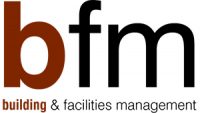The Future of Work and the Impact of Technology

Earlier this year, office design and fit-out specialist Area Sq, and GCS Recruitment Specialists invited ten business leaders to the Kyocera HQ to discuss the future of work and the impact that technology continues to have on this area.
The panel consisted of Tracey Rawling Church, Head of CSR at Kyocera; Julia Nott-Macaire, Director at Hadron International, Will Lawrie, Commerican Director at Winnersh Triangle Business Park; Malcolm Kanter, Managing Director at Datek; Alex Tatham, Managing Director at Westcoast; David Bloxham, Managing Director at GCS Recruitment Specialists; Aki Stamatis, Chairman of Fourfront Group; Will Houston, IT Director at Enterprise Rent-A-Car; Geraldine Parfitt, Associate Director of Facilities at PRA Health Sciences; and Luci Allen, Head of Operations at Pink Elephant.
From the rise of hot-desking and flexible working, through to the different generations in the workplace and future proofing a business, the roundtable delegates investigated the tactics that companies are now using to ensure productivity in the workplace, and how these elements can be used to both attract and retain employees.
When asked whether the working environment could be used as a candidate attraction and retention tool, the general consensus was that it is essential to understand how a business functions before designing a space that can support employees. Delegates agreed that an organisation must first conduct research about the workforce, including how people use the space depending on their various activity portfolios.
From thereon, the discussion pivoted on three topics; people, technology and space. Throughout the dialogue, it became apparent that although different people have different needs, a key requirement, regardless of how the world of work is changing, is the opportunity for collaboration. From the roundtable’s collective experience, workers want a place to share learning, knowledge and ideas. This is particularly true of the younger generation – the Gen Z’s – now entering employment for the first time.
Flexible working can obviously impact how people work together and collaborate. In line with the shifting landscape of work, the organisations as part of the panel discussion described how they had created environments that encourage the sharing of ideas and learning. The conversation concluded that striving for a sense of community can foster that all-important need for collaboration that, in turn, can boost productivity. This can be achieved through implementing a working model and designing a space that brings people together; it can also be driven by a strong sense of organisational culture.
The concept of a ‘work / life balance’ has been replaced by the idea of a ‘work / life blend’ and the roundtable delegates believe technology has played a fundamental role in this attitudinal shift. Organisations need to recognise that the line between the personal and professional worlds are blurry; it is, therefore, necessary to offer flexibility in return for the constant and unwavering connection to work demands.
Aside from the location, proximity to local transport links and onsite facilities, such as showers and breakaway areas, the panel were united in thinking that adopting a flexible approach to work, in addition to offering a variety of workspaces, is key to attracting talent and to improving output. Panel members agreed that the advancements in the tech landscape can and have improved productivity. As such, they would advise that businesses keep up with technology; senior managers also need to be aware of the implications of BYOD (‘bring your own’ device) and plan training schemes based on the various levels of aptitude and experience when it comes to technical ability.
Glass Door and similar social media platforms now offer users public ratings of UK businesses. Since there is more transparency than ever before, the onus needs to be placed on establishing a working model and a workspace that gives employees a sense of pride and belonging at work, not to mention driving a culture that promulgates a set of clear and undisputed values.
In order to tap into the potential of a workforce, business leaders need to make people feel ‘at home’ and relaxed. A flexible work environment tends to mean the people working are happier and more engaged – and this is what essentially improves productivity. Workplace professionals also need to question how to get the most out of the space itself – the CRE infrastructure and the square footage.
The unanimous conclusion is that businesses need to be playful with a space; they need to create different zones that support a variety of individuals all undertaking an array of activities. Organisations also need to review how technology and flexible working impacts collaborative pursuits. In the bid to improve productivity and to respond to shifting employment trends, business leaders must be aware of and partake in the on-going dialogue concerning the future world of work.
To read the Area Sq whitepaper on the subject, please visit: http://www.areasq.co.uk/news-knowledge/the-modern-day-workplace





